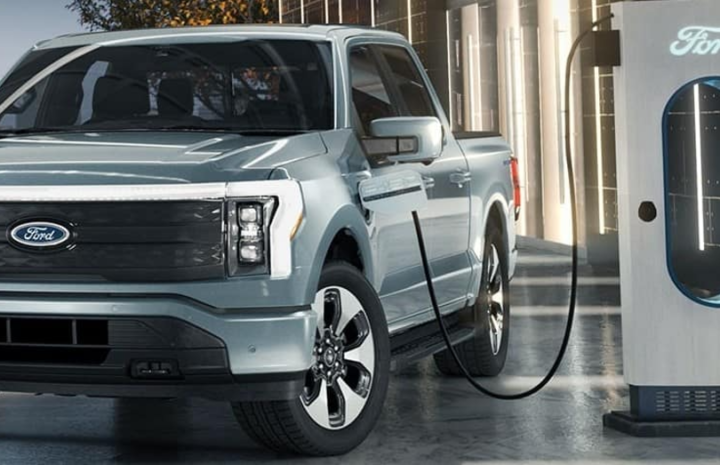Are automakers playing the long game with electric vehicles? Some companies have reported losses for every EV they sell; Ford is one of them.
Automakers banked on public demand to continue growing regarding electric vehicles. The push for additional EVs began with governmental support and sudden spiked sales, but that has slowed. EV sales are still rising compared to 2022 and the first part of 2023 but have slowed compared to the last half of 2023. This means costs are up and revenues are down for many automakers. Ford intends to invest billions of dollars in the EV market, but some companies might not withstand the losses incurred with each vehicle sold.
Ford loses $100,000 per EV
It’s a staggering figure to realize that one of the world’s largest automakers loses nearly $100,000 for each electric vehicle built. The For Model e showed first-quarter losses of $1.32 billion, which is an incredibly high number. The losses per Ford EV are more than double what they were last year. The high costs of building batteries continue to be a challenge, which means it might be time for the Blue Oval company to find cost-cutting methods to create profits in the EV market.
Is Ford in trouble?
Although Ford lost a staggering figure in the electric vehicle market, the company showed $905 million in profits across the traditional passenger vehicle segment. Unfortunately, this would keep Ford in the red in terms of profits and losses if it continues. Thankfully, the commercial side of the business came in with $3 billion in profits during the first quarter, which offsets the EV losses. Still, Ford would rather make some strong moves to keep profits high without requiring one aspect of its business to offset the other departments.
Ford changed its EV strategy
Instead of charging ahead and finding a break-even point, Ford is scaling back on its battery orders and production. The reduced battery orders will help mitigate EV losses, and Ford’s new battery factory in Marshall, Michigan, will be smaller than originally planned. This will also help offset the slowing demand for electric vehicles. These two moves should reduce losses in this segment of Ford’s business.
These changes in strategy will also mean Ford is pushing its new EVs back to later dates. Originally, Ford intended to be all-electric in Europe by 2030, but that doesn’t seem as likely to happen as before. With the proposed adjustments, Ford could reduce spending by $12 billion on battery-powered vehicles.
Instead of focusing on being electric-only in Europe by 2030, Ford says if customers want to drive internal combustion vehicles, they will sell them.
These changes continue to create losses
Although Ford will reduce losses in its EV spending by making some bold moves, the company expects Model e losses to reach as much as $5.5 billion. This segment of its business will continue to reduce profits significantly, but that won’t stop the company from selling EVs. To keep up with Tesla’s aggressive pricing strategies, Ford has had to cut the prices of its EVs to stay competitive in the market.
The ambitious move into the EV world by Ford means the company will have another massive loss by the time 2024 ends. This also means investors shouldn’t expect to receive returns on their investments as the company moves forward. The best Ford can hope for is that things turn around in the EV market over the next couple of years. It would also be prudent for Ford to continue to look for great ways to produce batteries at a much lower cost, but most automakers are looking into this.
Are Ford’s troubles industry-wide?
Most automakers use commercial or internal combustion segments of their business to offset the losses incurred in the EV market. This has become commonplace with the new investments being dumped into the EV world. It would be a huge mistake for large automakers like GM, Toyota, Honda, and Stellantis to turn their backs on internal combustion completely. Some brands have skipped over an important part of the market: hybrids. The transition from gas to electricity should go through hybrid vehicles, but some automakers skipped this step.
The massive EV losses at Ford could mean some EV-only brands will have to shut down and might not make it back. Fisker has already filed for bankruptcy for the second time, and Rivian might not survive with its EV offerings. Will the EV market turn around and eventually become a profitable part of the automotive market? Only time will tell.
This post may contain affiliate links. Meaning a commission is given should you decide to make a purchase through these links, at no cost to you. All products shown are researched and tested to give an accurate review for you.

